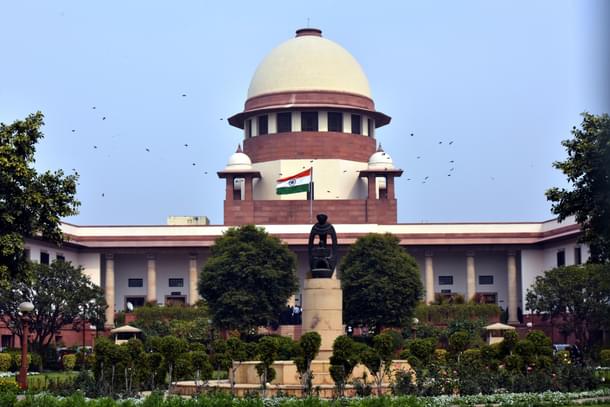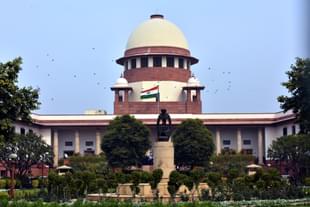Insta
Mandal 2.0 Moment? SC Agrees To Re-Examine 50 Per Cent Quota Cap, Seeks Response From States/UTs
IANS
Mar 08, 2021, 01:30 PM | Updated 01:30 PM IST
Save & read from anywhere!
Bookmark stories for easy access on any device or the Swarajya app.


After nearly three-decades of the Indra Sawhney judgment, the Supreme Court on Monday said the 50 per cent cap on reservation laid down by a 9-judge bench in 1992, could be re-examined in view of subsequent constitutional amendments and the socio-economic changes that has followed.
A bench headed by Justice Ashok Bhushan issued notice to all state governments and Union Territories whether reservation could be allowed to breach the existing 50 per cent limit, and also sought the Centre's Economically Weaker Section (EWS) quota amendment.
The bench also comprising Justices L. Nageswara Rao, S. Abdul Nazeer, Hemant Gupta and S. Ravindra Bhat said: "States have to be given opportunity to have their say."
The observation came while the apex court was hearing a batch of petitions challenging the validity of the Maratha reservation.
The top court said this matter is not limited to just one state, therefore it is important to hear other states too, as its decision in the matter would have wider ramification.
The top court will also examine the possibility of referring to Indra Sawhney's judgment to a larger bench and it will begin day-to-day hearing in the matter on March 15.
On December 9, last year, the top court had refrained from modifying the stay order in implementing reservation for Marathas in job and education in Maharashtra.
"We are of the view that looking into the issues raised in this appeal and the consequences to the followed, it is necessary that final hearing of this appeal be completed as early as possible. One of the issues before this Constitution Bench being interpretation of Constitution (One Hundred-Second Amendment) Act, 2018," said the top court.
The petitioners have challenged the Bombay High Court judgement passed in June 2019.
They have contended that the Act, which provides for 12 per cent and 13 per cent quota to Maratha community in education and jobs violates the principle laid in the 9-judge bench judgement of the apex court in 1992, which capped the reservation at 50 per cent.
The High Court had upheld the Maratha quota, where it ruled that reservation should be 12 per cent in jobs and 13 per cent in education.





